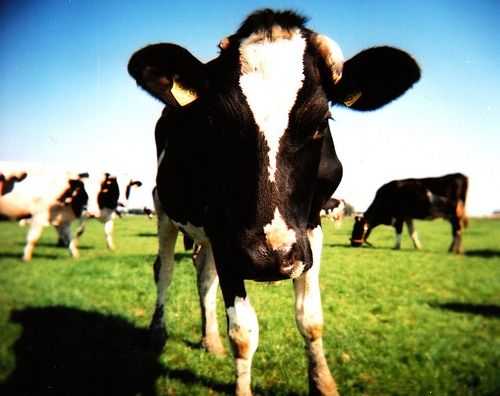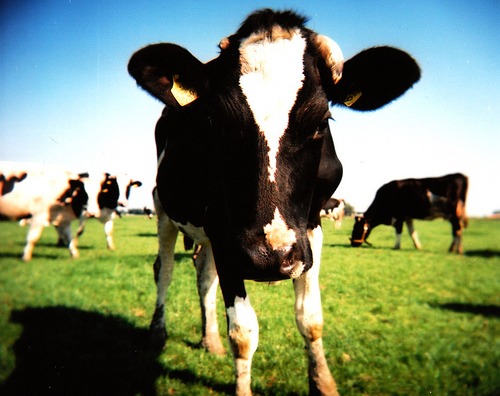Different livestock diets could lower emissions
Changing the diets of farms animals, such as cows and sheep could help reduce their contributions to agricultural greenhouse gas emissions, according to a new report. However, Defra warn that the benefits must be looked at in comparison with the practical and costly effects on farmers before widespread implementation.

 Changing what farm animals, such as cows and sheep, eat could reduce their greenhouse gas emissions, according to new research.
Changing what farm animals, such as cows and sheep, eat could reduce their greenhouse gas emissions, according to new research.
The study, carried out by Reading University and the Institute of Biological, Environmental and Rural Sciences showed that it is possible to reduce methane emissions and nitrogen excretion from cattle and sheep with nutritional changes.
Jim Paice, Minister for Agriculture and Food at Defra, who funded the research said: “We are committed to supporting the farming industry as it faces the challenge of reducing its greenhouse gas emissions. It is very exciting that this new research has discovered that by simply changing the way we feed farm animals we have the potential to make a big difference to the environment.”
The research aims to help farmers tackle their contribution to climate change, and shows that feeding animals foods such as maize silage, naked oats and higher sugar grasses can reduce the amount of methane they produce.
For example, the scientists found increasing the maize silage in an animal’s diet from 25 to 75 per cent during a short trial reduces methane emissions per kg of milk by 6 per cent, and high-sugar grasses could reduce an animal’s methane emissions by 20 per cent for every kilo of weight gained.
Emissions from agriculture are a major concern and last month, at a Royal Society meeting looking into the problem, there were calls for better mapping of the agricultural sector’s emissions because countries can export the problem by importing more food.
The Food and Agriculture Organisation (FAO) at the United Nations have also completed work to establish the amount of emissions that is produced in the farming sector through the rearing of livestock and many groups have called for this contribution to be highlighted, with the establishment of a Meat Free COP16 in Cancun last year.
The FAO study ‘Livestock’s long shadow’ in 2006 found that livestock is one of the top two or three most significant contributors to environmental problems, both locally and globally.
Agriculture currently contributes about nine per cent of all UK greenhouse gas emissions, and as much as half of this comes from sheep, cows and goats. Recent figures show that farming accounts for 41 per cent of the UK’s overall methane emissions.
Defra say the long term benefit of changing animal’s diets will still need to be considered against other environmental impacts as well as how practical or costly these changes would be for the farming industry to implement.
Image: JelleS | flickr

